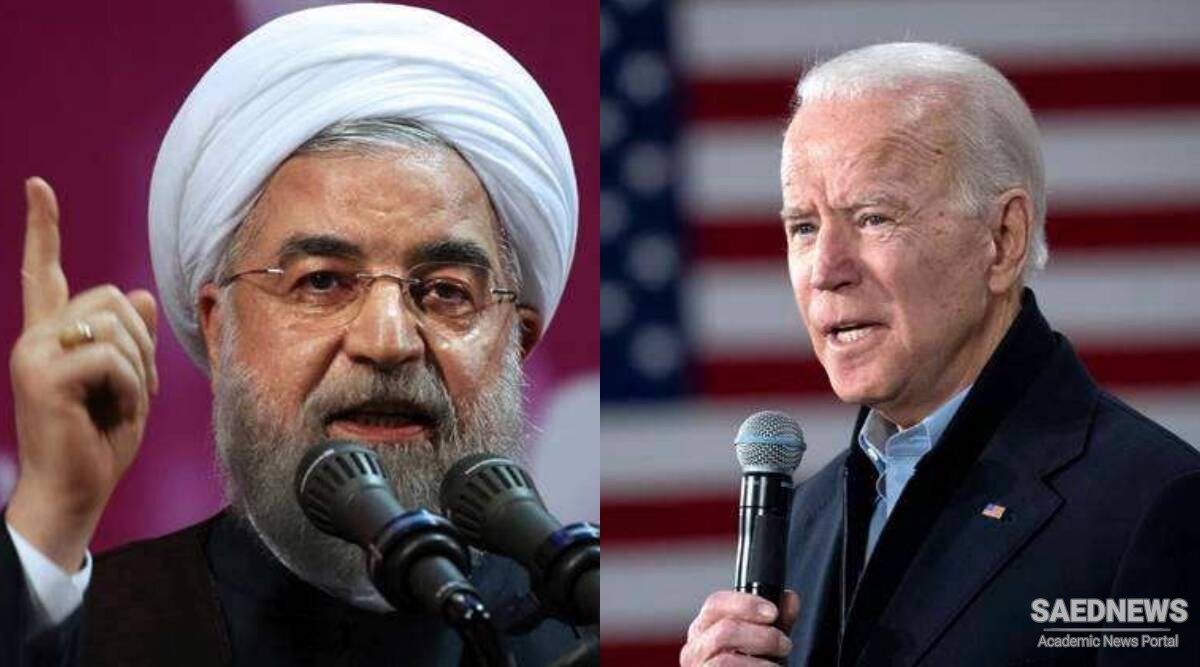Tehran, SAEDNEWS, Nov. 25: “One of the major manifestations of the Iranian nation’s victory and the ultimate defeat of the enemy in the economic war is the end of Trumpism era,” Rouhani said, addressing a cabinet meeting in Tehran on Wednesday.
He noted that Trump committed the worst crimes against the Iranian nation and the Palestinian and other oppressed nations, and said even during the coronavirus outbreak in Iran, he increased pressures and sanctions and prevented the International Monetary Fund (IMF) to provide Iran with a loan to purchase medical equipment.
“The reason behind Trump's failure was his wrong foreign policies, wrong health policies and racist military action. He was unreliable to everyone and continued his demagogic and populist behavior, and thanks God that the American people and the people of the region are ridden of this evil,” Rouhani said.
“We hope that the next US government will clearly condemn Trump’s policies against Iran and make up for the incorrect polices implemented by the former US government in the past 4 years,” he added.
President Rouhani said that Iran will take reciprocal measures vis a vis any steps taken by the US government, stating that if the new rulers in the US enjoy such a determination to decrease tensions and respect the Iranian nation and international undertakings, “I think that resolution of the problem is very easy and Iran and the US can decide to return to the conditions of January 20, 2017, and this main knot can be untied by determination and decision and full change of the path and conditions”.
Iran has repeatedly reiterated that the behavior and not the words of Trump's Democratic rival Joe Biden as the US President is important to the country.
US President-elect Joe Biden has recently said in a CNN article that he wants a renegotiation of the contents of the deal before he agrees to rejoin the agreement.
“I will offer Tehran a credible path back to diplomacy. If Iran returns to strict compliance with the nuclear deal, the United States would rejoin the agreement as a starting point for follow-on negotiations. With our allies, we will work to strengthen and extend the nuclear deal's provisions, while also addressing other issues of concern,” he wrote, mentioning that he wants changes to the contents of the nuclear deal and guarantees from Tehran that it would be open for compromise to strike multiple deals over its missile and regional powers as well as a number of other issues that have been the bones of contention between the two sides in the last four decades.
In response, Iran's Foreign Minister Mohammad Javad Zarif had stressed that the US has violated the nuclear deal and is in no position to ask for any conditions for its return to the JCPOA, adding that it's Tehran that has its own terms to allow the US back into the internationally endorsed agreement.
The foreign minister has reiterated time and again that Tehran would not change even a single word of the agreement, and cautioned the US that it needs to pay reparations for the damage it has inflicted on Iran through its retreat from the nuclear agreement and give enough ensurances that it would not go for initiating the trigger mechanism again before it could get back to the deal.
US President Donald Trump, a stern critic of the historic deal, unilaterally pulled Washington out of the JCPOA in May 2018, and unleashed the “toughest ever” sanctions against the Islamic Republic in defiance of global criticism in an attempt to strangle the Iranian oil trade, but to no avail since its "so-called maximum pressure policy" has failed to push Tehran to the negotiating table.
In response to the US’ unilateral move, Tehran has so far rowed back on its nuclear commitments four times in compliance with Articles 26 and 36 of the JCPOA, but stressed that its retaliatory measures will be reversible as soon as Europe finds practical ways to shield the mutual trade from the US sanctions.
Tehran has particularly been disappointed with failure of the three European signatories to the JCPOA -- Britain, France and Germany -- to protect its business interests under the deal after the United States' withdrawal.
On January 5, Iran took a final step in reducing its commitments, and said it would no longer observe any operational limitations on its nuclear industry, whether concerning the capacity and level of uranium enrichment, the volume of stockpiled uranium or research and development.
In relevant remarks earlier this month, Iranian Deputy Foreign Minister Seyed Abbas Araqchi said that the US should lift all sanctions imposed against his country in the past 3 years before returning to the nuclear deal.
“If the US wants to return, all sanctions which have been imposed in this period of time (past 3 years) should be removed. This is not a precondition for returning to the nuclear deal but it is the nuclear deal itself,” Araqchi said.
He added that of course there are other challenges that Iran and the US should talk about (within the framework of the nuclear deal) and the ground should be paved for the US return to the nuclear deal in a way that will meet the Iranian people’s interests.
“The world is now speaking about one point and the entire world has accepted that the (US) policy of maximum pressure has failed and did not attain any of its goals,” Araqchi said (Source: Fars News).

















































